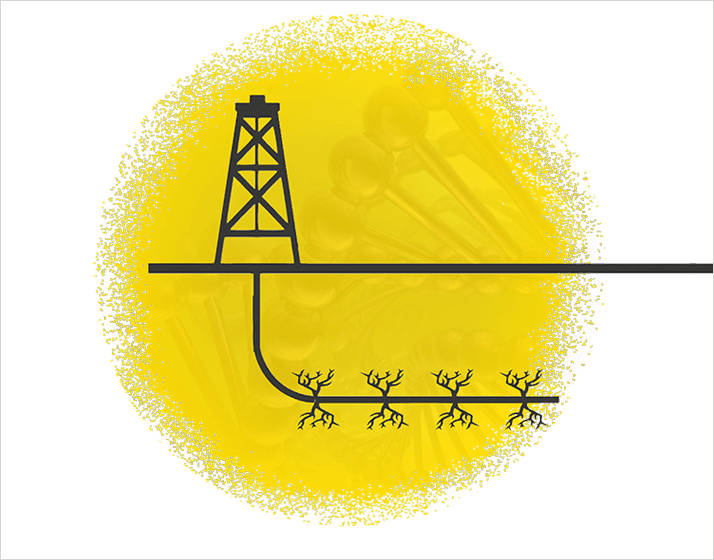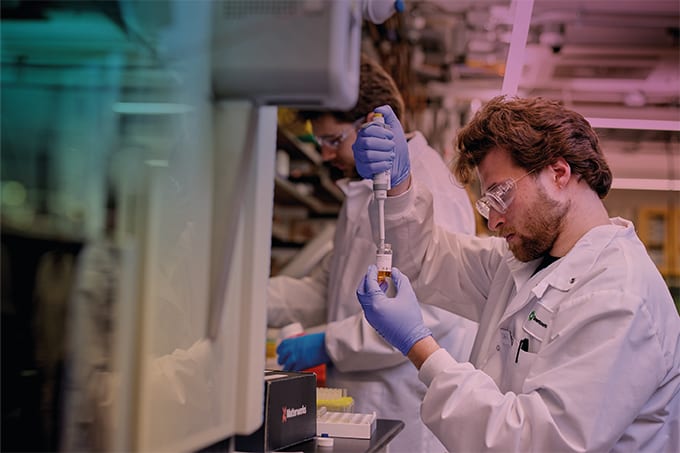Fracking is a hot-button issue. So, when they co-invented a technology to identify associated contamination problems, Justine Chow and Jake Rudulph saw an opportunity. They set up a company together, BaseTrace (www.basetrace.com), to commercialize it. Here, they answer our questions.

Could you describe how the system works? Jake: “BaseTrace uses unique DNA sequences, designed around a proprietary oligonucleotide configuration, to confer a fingerprint to unique fluid sources – these could be in situ or in a tank in an industrial setting. We can test samples for the presence of that unique tracer to determine whether there’s been connectivity where there shouldn’t have been.” What’s your background and why the interest in hydraulic fracturing? Justine: “I studied biology at Harvard and came to Duke University for graduate school, where I began to learn more about hydraulic fracturing. In carrying out research for a nonprofit in Washington DC I realized that, regardless of which side people took on the arguments surrounding hydraulic fracturing, they were all looking for a tool to help objectively determine whether the process causes contamination.
Where did the inspiration behind BaseTrace come from? Justine: “In part, from my background in biology. We have patent-pending DNA configurations that can act as tracers while remaining chemically and biologically inactive. We decided to enter the Duke Startup Challenge to see how far it would take us and won some money. We also secured a Duke Environmental Innovation and Entrepreneurship grant. That’s what gave us the cash and courage to get some lab space and make our tracer technology a reality.” What technology choices did you make and why? Jake: “Detection is performed using PCR, so you have to know what you’re looking for to find it. It was an obvious choice, both for its versatility and for its wide availability; eventually, we’d like to be able to license out our detection capabilities, so that any lab with PCR capabilities is set up for our detection protocol, given our proprietary chemistry.” Were there any unexpected challenges in creating a robust system? Jake: “Justifying the BaseTrace system has been both challenging and exciting because of the problem’s cross-disciplinary nature – we’ve had to draw on expertise in hydrogeology, engineering, geography, and petroleum geology, as well microbiology, bioinformatics, and machine learning. This convergence creates a very exciting work environment, and allows us to bridge new gaps.”
Did you face any opposition to the concept? Justine: “No. The companies we’ve talked with see it as a way to prove their innocence. Right now companies are being pushed to disclose trade secret fracking fluid ingredient lists and formulas, but testing for potentially hundreds of different chemicals is hard on state and local regulators.” What are the main challenges from a business perspective? Justine: Funding, to a certain extent. We haven’t actively sought or obtained any funding from oil and gas companies, so this technology has been developed independently through local startup competition money and investments from friends and family. Where do you see the company in five or ten year’s time? Justine: “Hopefully, we'll have expanded into different applications and possibly other countries, and the tracer will be present in most oil and gas wells, and certain underground storage tanks. Because our technology uses DNA, we’re able to generate many trillions of different sequences, each of which can be assigned to an individual potential source of contamination or leakage.” Jake: “The beauty of the BaseTrace technology is its simplicity, but I’d love to see additional technological advancement of the tracer design for niche markets and perhaps more extreme environments.”




